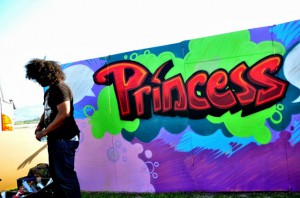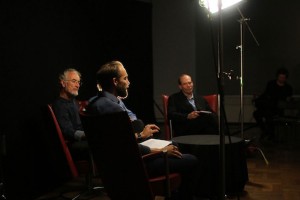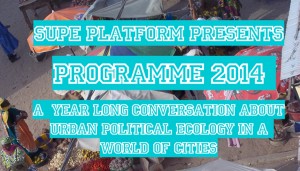Reflection After a Project: Building Collaborations Beyond The Peer-Reviewed Publication
The Ways of Knowing Urban Ecologies (WOK-UE) project started in 2011 and finished in December 2016. Amongst other activities, the project proved instrumental in helping to build the Situated UPE Collective from its early days in 2013. Here PI Henrik Ernstson reflects on this now finished research project to exemplify how projects can act as crucial venues for critical social scientists in building collaborations, projects and constellations beyond the peer-reviewed publication.
Looking beyond peer-reviewed publications
The Ways of Knowing Urban Ecologies Project has been incredibly productive as can be witnessed by its publication list. This includes one PhD thesis, an upcoming edited volume with MIT Press, and a row of high-calibre theoretical and empirical contributions in top-journals based on extensive empirical work in Cape Town and Stockholm, including New Orleans (the latter mainly through the associated MOVE project). To this, the core WOK-UE team—Jane Battersby, Marnie Graham, Anna Storm, Joshua Lewis, Mary Lawhon, Jessica Rattle, Sue Parnell and Sverker Sörlin—also made regular contributions to wider popular science and media platforms. 

The WOK-UE project also created a lot of activities that were not mentioned in the short final report that I submitted to the Swedish funder Formas. In this post I would like to take the opportunity to list some of those activities since it shows how research projects can be viewed as venues to build new collaborations, projects and constellations beyond empirical research and peer-reviewed publications. In this list, I also mention key collaborators who have been more than instrumental in developing the following three main activity streams that were developed as part of WOK-UE, sometimes with funding from other sources as well:
(A) The building of The Situated Ecologies Platform, which is a highly interdisciplinary and transdisciplinary platform of collaborations that explores urban ecology across a range of registers and which included the following activities:
- The development of two major film projects, One Table Two Elephants (upcoming in 2018), and Moving Closer to Nature with film-maker and researcher Jacob von Heland. This in turn has lead to the funding of a new project into Visual Environmental Humanities that includes two new research films.
- Explorations at the borderland between design, art and ecology in Tactical Symbiotics with designer Martín Ávila, which was aligned to his postdoctoral project.
- The development of the ACC Annual Seminar and PhD Course on Democratic Practices of Unequal Geographies with political philosopher Andrés Henao Castro, which over three years have explored the intersection of political theory, global South urbanism and urban ecologies/geographies.
- The organizing of the academic workshop on Radical Incrementalism and Theories/Practices of Emancipatory Change with critical geographer Jonathan Silver.
- The use of hip-hop and theatre practices to situate stories of Cape Flats in the play STOMPIE in Cape Town together with Emile Jansen/Mixed Mense and theatre director Kent Ekberg.
- The partial funding of organizing the interdisciplinary conference Urban Beyond Measure at Stanford University with critical geographer and urban planner Jia-Ching Chen.
- The provision of funds for the development and eventual funding of major research grants on food security at the African Centre for Cities by Jane Battersby (read more here).
- The development of two major film projects, One Table Two Elephants (upcoming in 2018), and Moving Closer to Nature with film-maker and researcher Jacob von Heland. This in turn has lead to the funding of a new project into Visual Environmental Humanities that includes two new research films.
- (B) The support and early development of the Situated Urban Political Ecologies Collective (#SUPE), including:
- The work with SUPE-core publications in Antipode and Regional Studies with Jonathan Silver, Mary Lawhon, and James Duminy.
- Complementary funding of the SUPE Africa-focused week-long workshop in Pretoria with younger scholars, especially from African universities, with Jonathan Silver, Mary Lawhon and Joe Pierce (with main support from the Antipode Foundation).
- The support for SUPE members to give conference presentations and organize special sessions at the conferences of Dimensions of Political Ecology (DOPE) and Association of American Geographers (AAG).
- Support towards the development of new research projects that have now been funded, including NOTRUC, TLR Waste, and HICCUP with several already mentioned scholars, alongside Suraya Scheba and Koni Benson (funded wholly by WOK-UE), and Erik Swyngedouw, Nate Millington and PhD students Kathleen Stokes and Anesu Makina (funded through the new projects).
- And the development of this crucial website, which is our recently released official website for The Situated UPE Collective.
- (C) And finally, the writing and organizing of the Grounding Urban Natures edited book volume (Ernstson & Sörlin), which included two workshops in Cape Town and Stockholm and a special session at the ASEH in San Francisco. The book is now in review at MIT Press with 14 chapters and should come out in 2018.
Building networks
Just this glimpse into the project’s main activities beyond the peer-reviewed publication, shows what a single project can do when paired with excellent people, institutions and other projects. Throughout its life-span, the WOK-UE project have been quite instrumental in supporting the building of an amazing network of scholars and students, in particular young and up-and-coming (of which I counted myself in the beginning of WOK-UE) and practitioners that go beyond those mentioned here. Grounded in this experience, it becomes clear to me just how important it is for us critical scholars to network and use the resources we control to actively build peer-networks and peer-collaborations. While fieldwork and the writing of PhD theses and peer-review publications arecentral to our work—so is the ability to build longer-lasting networks.
At least three crucial contextual factors are important to mention. First, the Swedish funder Formas is an excellent funder in that it provides high autonomy to the PI to run the project. There are few reports to write and their administration is highly flexible and personal. This in turn provides time for the team and the PI to stay focused on empirical research and networking, such as those above. Also, if not all funds are spent as first outlined and in time, changes and extensions can be negotiated without too much formalities. Secondly, the universities involved have been highly accommodating of the project, in spite its international complex arrangement with scholars from different institutions and countries. I have been highly reliant on competent university administrators, economic controllers, and interested research directors to steer the project and accommodate it within separated bureaucracies that demand specific budgets, overhead costs and paper work. Thirdly, the building of dedicated websites and keeping them active have proved important to gather and build a network of interested scholars and students. To encourage team members and others outside of the project to contribute blog-posts for provides a channel to write less formal texts than those for peer-reviewed journals. The website also creates a logbook of a project. For WOK-UE you can for instance easily go to The Situated Ecologies Platform website and search for “ways of knowing” (or just click here). Up pops at least 36 related posts, which provides a quite fascinating overview of “the rhythm” of the project; smaller and larger events and activities string out over time that helps to build an idea of the project. Building a website was indeed a good and early decision that has served to create interest around the project among scholars, students and the public. Now, after the project, the website provides testament of the project and material for further reflection.
Finally, it has been a lot of work as PI for the WOK-UE project, but it has also been extremely rewarding. This was my first research project as PI, and I have a lot of people to thank, some of them are mentioned above, in being able to serve (and flounder) in this role.
/Henrik Ernstson, Cape Town 18 May 2017.
PS. Read a short final report sent to funder Formas (Swedish translation, scroll down on this page). A similar post was also posted here.
Project: The Ways of Knowing Urban Ecologies Project (2011-2016)
Principal Investigator: Dr. Henrik Ernstson.
Project Researchers: Dr. Jane Battersby, Dr. Mary Lawhon, Dr. Marnie Graham (then PhD student), Dr. Joshua Lewis (then PhD student), Dr. Anna Storm, Professor Sverker Sörlin. Also associated at a crucial stage of developing SituatedUPE, was Dr. Jonathan Silver.
Institutional Partners: KTH Environmental Humanities Laboratory, KTH Royal Institute of Technology; African Centre for Cities, University of Cape Town; Stockholm Resilience Centre, Stockholm University.
Institutional Partners: KTH Environmental Humanities Laboratory, KTH Royal Institute of Technology; African Centre for Cities, University of Cape Town; Stockholm Resilience Centre, Stockholm University.
Funder: Swedish Formas.




Comments